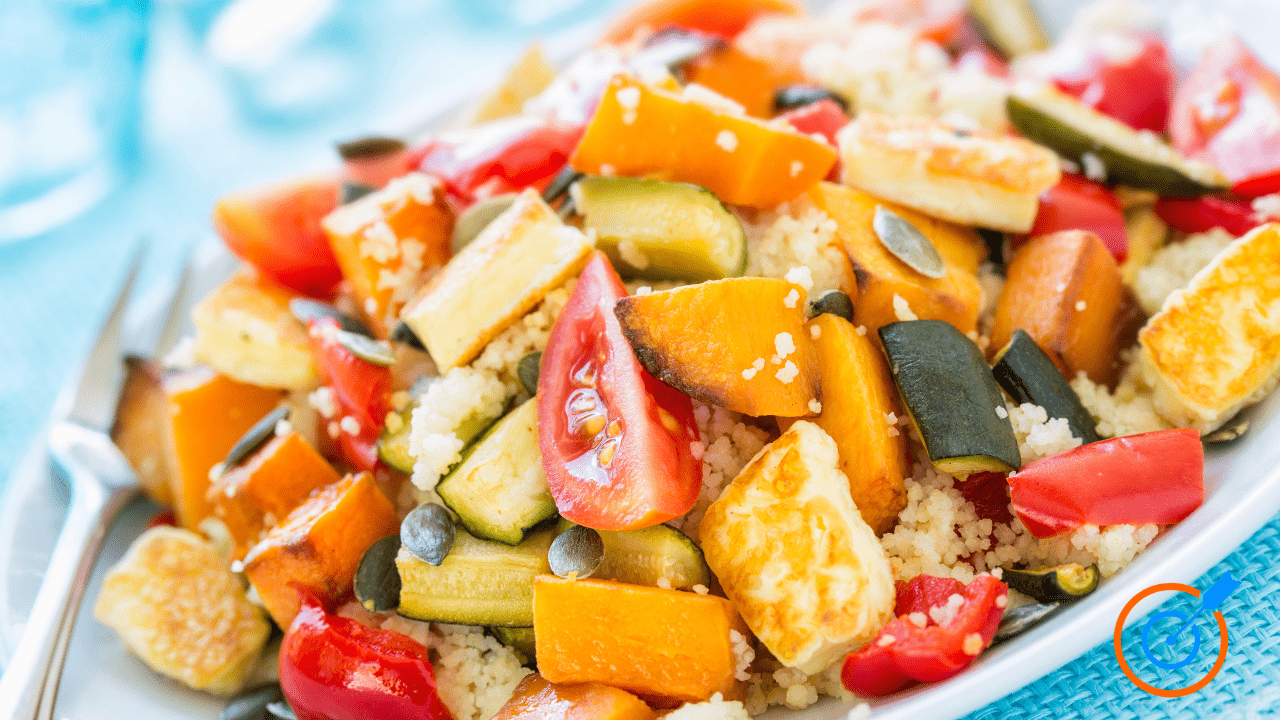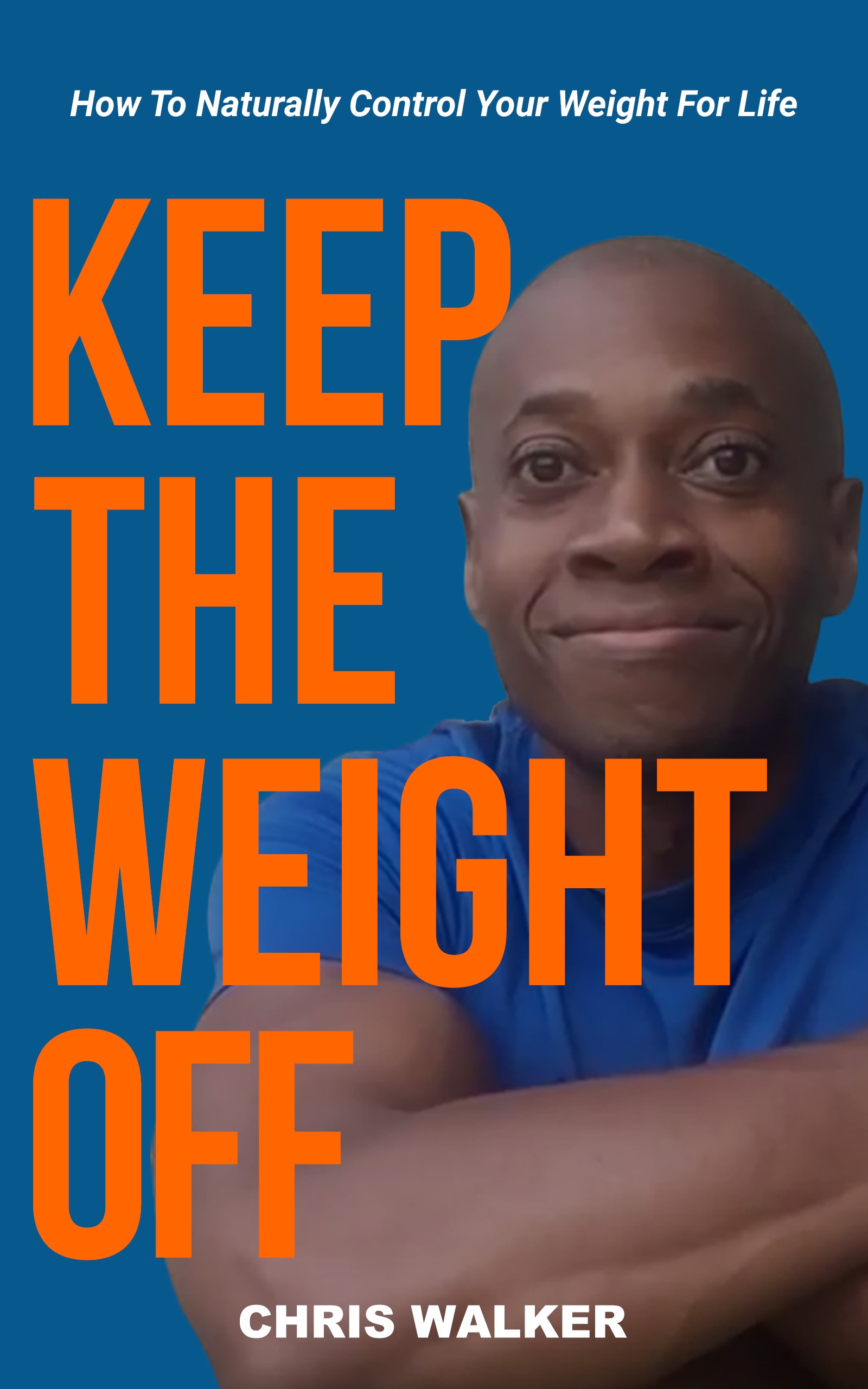If I were to tell you to eat to lose weight, you would think I was insane since most people’s idea of a weight loss meal plan is cutting back on calories, primarily carbs (calorie deprivation). The majority of us have been taught and or programmed to think that “carbs” (carbohydrates) are bad “carbs” are the enemy. ATTENTION, ATTENTION “Carbs” are not the enemy however the type of carbohydrates you consume is what really matters when you’re seeking to create a weight loss meal plan.

Why Should I Eat More To Lose Weight?
The act of eating in itself is asking your body to do work (digestion). As humans over time, we have processed, bleached, and refined our foods (simple carbs). We’ve done this for a few reasons, taste, convenience, and even status. Kings in early history used to only feast on refined foods; while peasants ate all-natural foods. We’re not doing our bodies a favour by processing and refining foods before intake. When we eat in this manner our body has less work to do and depending on what we eat food can be more easily stored as fat.
The harder the body has to work during digestion the more efficient it becomes in metabolizing food. TEF (thermic effect of food) is also an important factor. The more complex the meal the more energy you expend. When you expend more energy you slightly increase body temperature (that’s why it’s called thermic). The whole process of TEF can burn up to 10 calories; protein being the most thermic of nutrients and fat being the least thermic of nutrients. Additionally, it is important to note that one gram of protein or carbohydrates contains 4 calories, while one gram of fat contains 9 calories.
In addition, as we age our digestive system slows down and the food that is not digested can become stored as fat. All of this goes to say; your body will burn more calories digesting a poor-quality meal compared to eating a high-quality, nutrient-dense meal.
When it comes to weight loss, not all carbohydrates are created equal. The type of carbs you consume, especially in the late afternoon, plays a crucial role in achieving your goals. Processed and refined carbs, also known as simple carbs, have been stripped of their natural nutrients and fiber. These types of carbs are easily digested by the body, often leading to stored fat.
On the other hand, consuming complex carbohydrates, found in whole foods, offers health benefits and requires more effort from your body during digestion. This results in a higher thermic effect of food (TEF), where your body burns more calories to break down the food. Complex carbs also provide essential nutrients and fiber, helping you feel fuller for longer.
Incorporating high-quality sources of complex carbohydrates, such as whole grains, fruits, vegetables, and legumes, into your weight loss meal plan can support your goals. These foods not only provide sustained energy but also promote overall health and well-being. Don't forget to add these items to your shopping list.

Make Your Meals Complex
In order to eat for weight loss, simply increase the complexity of your carbohydrates or in other words complex carbs. Complex carbs can be further broken down into two categories, starchy carbohydrates, which are food items like sweet potato, brown rice, beans, etc., and fibrous carbohydrates which are cabbage, carrots broccoli just to name a few, and all green leafy veggies. It’s also a good idea to combine protein, starchy carbohydrates, fibrous carbohydrates, and good fats in each meal. This ensures increased TEF and metabolism.
Your weight loss meal plan should include complex carbohydrates! Your body was designed to metabolize natural foods, and incorporating this method into your dieting plan is mostly common sense. Some of us already partially eat this way but often give in to convenience and processed foods.
Another benefit to adding more complex carbs to your weight loss plan is it will help you to build more muscle. Yes, this change will not only help with weight loss but it will also support lean muscle tissue gains when combined with exercise. You'll notice you'll lose fat and gain a healthy weight when you combine complex carbs with exercise.

What To Avoid?
You must also avoid a few things when designing your weight loss meal plan. You'll want to avoid trans fats, hydrogenated fats, sugars (glucose, sucrose fructose), and refined, bleached, and processed foods. This includes white rice, white bread, and fruits. Did I say FRUITS, yep! I thought fruits were good? They are and don’t stop eating them but they contain sugar (fructose), and if weight loss is the primary goal you will want to limit fruits to 2-3 per day. The same thing goes for fruit juices. When you do eat fruit or have any sugars always have them in a complete meal (protein, starchy carbs, fibrous carbs, and good fats).
Your Weight Loss Meal Plan Should Not Include:
- Sugar
- Alcohol
- Commercial Dairy (Filled with too many hormones and chemicals.)
- Wheat (Contains gluten and damages the gut lining of most people.)
- Barley (Contains gluten and damages the gut lining of most people.)
- Rye (Contains gluten and damages the gut lining of most people.)
- Oats (Are often contaminated with gluten and can damage the gut lining of most people. If consuming be sure it's properly soaked and prepared.)
- Corn (Often GMO, sprayed with Roundup, if it's organic you can eat it!)
- Soy (Often GMO, sprayed with Roundup, if it's organic and in its whole form especially when fermented a little is okay.)
- Fried Food (Gives you too many free radicals and produces carcinogenic acrylamide.)
- Oils for cooking or salad dressing. (Oils oxidize, giving you too many free radicals and inflammation. A little authentic olive oil and coconut oil is okay but cooking without it is best.
- Use lard, ghee, or butter instead.)
- Deli Meat / processed meats with nitrates. (Nitrates are carcinogenic and cause cancer. Eat nitrate-free meats instead.)
- Soda / carbonated beverages near or at mealtime. (Interrupts digestion and absorption, carbon dioxide neutralizes stomach acid needed for digestion. Drink all liquids separate from meal time if possible.)

What Happens When You Have Sugar?
Cakes, ice cream, chocolate, cookies, and pop all contain sugar (simple carbohydrates) that can trigger cravings. When you put a simple sugar into your digestive tract all that sugar will be absorbed into your bloodstream at once. As a result, you have momentarily high blood sugar. Your pancreas produces two hormones. Insulin (storage hormone) transports sugars to muscle, liver, and fat storage. Glucagon (release hormone) which allows mobilizing of stored fat. You want to keep a healthy balance between glucagon and insulin if you want to create an environment for fat loss, without risking starvation.
OK, back to the high blood sugar. Your pancreas responds to the high blood sugar level by producing more insulin. When your pancreas is forced to increase insulin it has no choice and must decrease glucagon production. Low glucagon levels mean nothing can be released and fat is trapped. In other words, if you exercise all day and eat poorly encouraging frequent insulin spikes, you’ll never be lean and or muscularly defined because fat is infrequently released. Having sugar causes a spike in blood sugar levels, leading to the production of insulin by the pancreas. Increased insulin levels decrease glucagon production, which prevents fat release and leads to fat storage.
To create an environment for fat loss, it's important to maintain a healthy balance between insulin and glucagon.

Little Nutritional Value
In addition, ingesting foods made with bleached and refined flour have little nutritional value; losing valuable micronutrients through processing, making them “empty calories” that are easily converted into triglycerides and stored as fat. Poor eating habits destroy your body’s fat-burning capability. When you “eat to lose weight” you ingest complete meals all the time. Components of a complete meal allow the slow release of glucose into the bloodstream, providing proper nutrition. This allows the pancreas to maintain a balance between insulin and glucagon hormones. Be sure when creating your weight loss meal plan you follow the "eat to lose weight" principle.
Your Weight Loss Meal Plan Should Include
1. Lean protein sources: Include sources such as chicken breast, turkey, fish, tofu, hard-boiled eggs, or legumes in your meals. These help with muscle maintenance and satiety.
2. High-fiber carbohydrates: Opt for whole grains like brown rice, quinoa, and whole wheat bread instead of refined carbohydrates. These provide sustained energy and keep you feeling fuller for longer.
3. Healthy fats: Incorporate sources like avocados, nuts, seeds, and olive oil into your meals. These fats aid in nutrient absorption and help you feel satisfied.
4. Plenty of vegetables: Make sure to include a variety of vegetables in your meals, such as leafy greens, broccoli, carrots, peppers, and cauliflower. These provide essential vitamins, minerals, and fiber.
5. Hydration: Drink plenty of water throughout the day to stay hydrated and support digestion and metabolism.
6. Portion control: Pay attention to portion sizes and eat mindfully to avoid overeating.
Remember, consistency is key when following a weight loss meal plan. Stick to these guidelines and make healthy choices to achieve your goals.
How To Structure Your Meals (Avoid Snacks)
When creating your weight loss meal plan you should follow this structure. Eat three large meals every day. Your meals should be spaced out every 4-5 hours. Your three large meals will consist of a healthy protein, a starchy carb, a fibrous carb, and a good fat. 3 meals are best because they will trigger less insulin, increase HGH and help you to burn more fat. In other words, no snacking! If you want to burn fat faster you must trigger insulin less frequently and every time you snack you trigger insulin making it more difficult for fat release!

Healthy Protein Examples
- Organic Chicken & Turkey
- Wild Caught Fish-Salmon, Sardines,
- Mackerel..etc
- Organic Eggs
- Grass-finished, free-range beef
- Hunted or ethically sourced meats
- Spirulina
- Chia seeds
- Hemp seeds
- Maca root
- Amaranth

Starchy Carb Examples
- Pumpkin/Squash
- Sweet Potato/Yams
- Brown Rice/Wild/Basmati
- Organic Corn
- Teff
- Beans/Lentils
- Buckwheat
- Millet

Fibrous Carb Examples
- Asparagus
- Bell Peppers (Red, Yellow, Green)
- Brussels Sprouts
- Cabbage
- Cucumbers
- Cauliflower, Broccoli
- Egg Plant
- Romaine Lettuce
- Spinach
- Berry family-Blackberries, Blueberries, etc.
- Melon family-honeydew, watermelon, etc.
- Apples
- Banana

Good Fats
- Raw Nuts and Seeds
- Coconut Oil
- Authentic Olive Oil
- Ghee
- Almond Butter
- Butter
- Avocado
- Plain Organic Grass-Fed Cottage Cheese
- (Not pasteurized)
- Organic Grass-Fed Greek Yogurt
- (Not pasteurized)
- Organic Grass-Fed Kefir (Not pasteurized)
Final thoughts on eating
Break away from the mindset of counting and extreme calorie reduction. We only eat this way because we think we need to starve in order to lose weight. There is a whole world of food out there explore and have fun eating healthy. If there were as many commercials for nutritious foods as they are for those fast food joints we wouldn’t be struggling with a high obesity rate. So don't think in order to lose weight you have to be on a low-carbohydrate diet. You can be successful without starving yourself! You’ve got this!

FAQs Related To Weight Loss Meal Plans
Choosing a perfect meal for weight loss can be subjective as it depends on individual preferences, dietary restrictions, and goals. However, a well-balanced meal for weight loss typically includes a combination of lean protein, whole grains, fruits or vegetables, and healthy fats.
The best foods for weight loss are generally those that are nutrient-dense, low in calories, and high in fiber. Some examples include:
1. Fruits and vegetables: These are low in calories but high in nutrients and fiber, making them great choices for weight loss. They can help you feel full without consuming a lot of calories.
2. Lean proteins: Foods like chicken breast, turkey, fish, tofu, and Greek yogurt are high in protein and can help you feel full for longer periods of time.
3. Whole grains: Foods like quinoa, brown rice, whole wheat bread, and oats are high in fiber and can help keep you satisfied.
4. Legumes: Beans, lentils, and chickpeas are rich in protein and fiber, which can aid in weight loss by keeping you full and satisfied.
5. Nuts and seeds: These are high in healthy fats, protein, and fiber. However, they should be consumed in moderation due to their calorie density.
It's important to note that while these foods can support weight loss efforts, it's always best to consult with a nutritionist or registered dietitian to develop an individualized plan that meets your specific needs and goals.
Losing weight in 7 days requires a combination of healthy eating and regular physical activity. In general, most people see great results in 7 days when they eat a diet full of nutrient-dense foods and remove things like sugar, soda, and processed foods from their diet.




0 comments